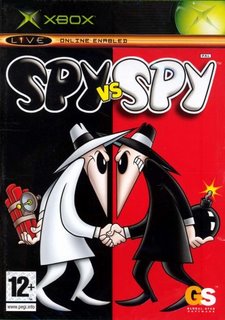Wednesday, August 23, 2006
Pro-Israel Spying Case Leading To Crackdowns On American Media

The federal judge in the case involving espionage allegations against Israeli lobbyists is apparently buying the Bush administration argument for cracking down on journalists who deal with classified material.
A federal judge has ordered an investigation into how reporters learned that two pro-Israel lobbyists were under federal investigation before they were formally charged, creating even more scrutiny of the media in a case with broad First Amendment implications.
The order by U.S. District Judge T.S. Ellis III in Alexandria came in the case against Steven J. Rosen and Keith Weissman, who are charged with receiving and disseminating national defense information. Legal experts say the case could lead to criminal prosecutions of reporters or newspapers that print information the government has classified.
In an entry on the docket in U.S. District Court, Ellis ordered the Justice Department to conduct a leak investigation into whether government employees disclosed details of the investigation to CBS News in 2004. The docket entry was dated last week, but Ellis further explained it in a previously classified order made public yesterday....
Rosen and Weissman were charged last year with violating the Espionage Act in what prosecutors call a conspiracy to obtain classified information and pass it to members of the media and the Israeli government. They are former employees of the powerful American Israel Public Affairs Committee, or AIPAC.
The lobbyists are the first civilians who do not work for the government to be charged under the 1917 espionage statute with orally receiving and transmitting national defense information. Court documents say the information covered subjects including the activities of al-Qaeda and possible attacks on U.S. forces in Iraq....
Federal authorities are conducting a number of investigations of leaks of classified information to journalists, and legal experts said Ellis's order is noteworthy because it is unusual for a judge to initiate such an inquiry.
"It's one of the first tangible signs that the view of the Bush administration, that journalists are not immune from prosecution for trafficking in classified information, might have currency with some federal judges," said Rodney A. Smolla, dean of the University of Richmond Law School and an expert on First Amendment law. He said it is an "open question" whether federal law allows for the prosecution of journalists for publishing classified information.


